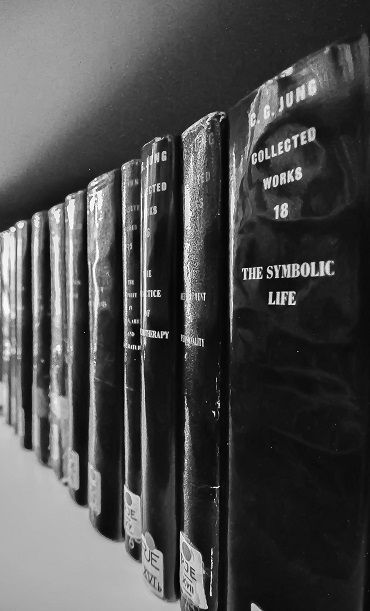Research
The work of Carl Gustav Jung began with empirical research: He became internationally known with the empirical results from the Word Association Test. In the context of these experiments, he developed his theory of emotional complexes, which became a central building block of his Analytical Psychology.
In the following decades, an internationally broad-based research culture of Analytical Psychology developed, which is also reflected in the culture and teaching of today's C. G. Jung Institute Zurich. Thus, the Research Committee cultivates the research culture at the C. G. Jung Institute Zurich and organizes events on research methods and results.
In addition to the long-standing tradition of a "Research Colloquium", the findings of psychotherapy research and their implications for practice are regularly communicated and discussed in events organized by the Institute. Each semester, for example, a research (half)day or science (half)day is held with in-house and external speakers, at which current research findings and their relevance for psychotherapy are discussed. In addition, lectures/seminars on statistical-methodological as well as clinical issues are offered.
In order to promote a lively exchange on research topics, a "Zoom Research interest group” has been established: It plans short-term online meetings for students and instructors on current research topics. Accredited staff and students are invited to these meetings (in German and English) by the Research Committee on by circular email. Participation is free of charge and is confirmed as continuing education.
The dates of these meetings are published on this website:
29.03.21 Günter Schiepek: The Dynamics of Mental Processes in Psychotherapy and Systemic Complexity science.
17.01.22 Gerold Roth: Who benefits from psychotherapy? Critical remarks on indication and goal formulation in our daily work
28.02.22 Mostafa Kazemian: The Social Aspects in Analytical Psychology. A discussion of the individuation concept in light of the sociocultural layer of the unconscious.
21.03.22 Monica Luci: Working clinically with torture survivors: the self in complex trauma, the psychic space and the role of 'psychic skin'.
04.04.22 Marie A. Bochmann: The mapping of complexes using active imagination
09.05.22 Christian Roesler: Archetype theory for the 21st century: a revised conceptualization
23.05.22 Laner Cassar: Imaginative Movement Therapy (IMT): A neo-Jungian approach to active imagination
24.04.23 Nada O'Brien: Music and The Unconsious: Jungian perspective on Music
21.11.23 Shany Lidar: Erich Neumann - The Theoretician and his Theory
09.10.23 Carlo Dehne: Opportunities for and Challenges to Jungian Psychotherapy with Young Adults 25-35 years
17.06.24 Marzia Santori: "Cherchez la femme": a Jungian quest for the feminine in the Odyssey and related literature
22.07.24 Claudio Mele: Roots. Unus Mundus and Candomblé
23.09.24 Rachel Boughton: Splitting a Mountain in Two: Enlightenment as Memory and Individuation in the Story of a Song Dynasty Chineses Woman
07.10.24 Elisaabetta Pasini, Cinzia Trimboli: "A Social Dreaming Experience at the time of Covid 19" Springer Editor - New Paradigms on Healthcare
02.12.24 Alejandra Matos: "Unlocking AI's Potential in Psychotherapy"
03.03.25 Roisin Tangney: "Living in the Edge Times"
14.04.25 Sulagna Sengupta: "Animus, Psyche an Culture - A Jungian Revision by Sulagna Sengupta"
05.05.25 Okan Yildirmilar: "Dynamiken im interkulturellen Setting - Ein analytisch-psychologischer Zugang"
Contact
The Research Committee of the Institute currently has the following elected members:
Liz Brodersen, Claudio Mele, Christa Futscher, Marzia Santori, Amalia Carli, Valeria Musso, Luigi Ramazio
We would like to encourage anyone interested to contact us if you would like to collaborate or have a question you would like to pursue. Contact: [tocco-encoded-addr:MTE0LDEwMSwxMTUsMTAxLDk3LDExNCw5OSwxMDQsNjQsMTA2LDExNywxMTAsMTAzLDEwNSwxMTAsMTE1LDExNiwxMDUsMTE2LDExNywxMTYsNDYsOTksMTA0]
Documents
Compilation of publications of accredited members
Download PDFLinks
https://psychotherapie.ch/wsp/de/wissenschaft-und-forschung/
https://www.psychotherapie-wissenschaft.info/
